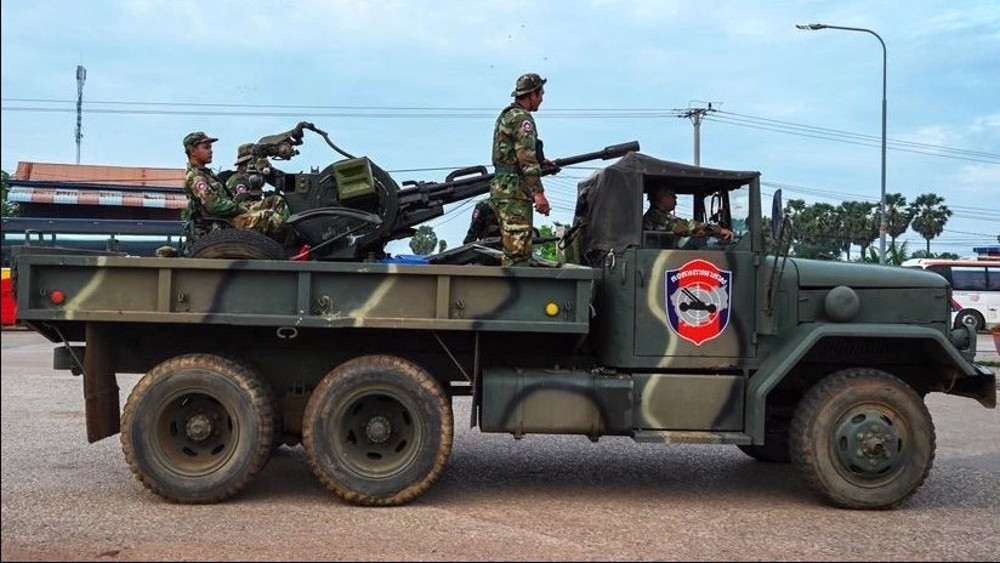US government's priority is not in fighting terrorists in Syria: Analyst
Press TV has interviewed Richard Becker, from the ANSWER Coalition in San Francisco, about Russia criticizing Washington for not joining Moscow in fighting terrorist groups operating in Syria.
The following is a rough transcription of the interview.
Press TV: In essence, why is the US not cooperating with the Russians in fighting terrorism in Syria?
Becker: They could certainly do that, they can certainly cooperate if they want to, they can do a lot more if they want to, but they do not really, that is not really their priority. The United States government does not like the Islamic State (Daesh) or the al-Nusra Front but their priority is not in fighting them. Their priority still remains bringing about a new government in Syria, regime change, which has been the US objective now for five years and also the United States government is very hostile, in a very hostile mode, I would say, at this point toward Russia. The taking in of Montenegro, really a tiny country of 600,000 people last week into NATO prompted the comments by a high-ranking Russian officer who said that they would take in the North Pole if they could contribute to encircling Russia and it is very clear that this is a top priority for the United States [that] is moving in this aggressive way, militarily aggressive way, in terms of the NATO alliance against Russia.
Press TV: Essentially if in your perspective there is this divide and disconnect between the Russians and Americans when it comes to fighting terrorism in Syria which there is reason to believe that is the case, then how come the UN special envoy to the Syria peace talks Staffan de Mistura keeps telling us and the world that there need to be tighter coordination and cooperation between these two major states that is Russia and the US? Is he not aware of the differences and the conflicting views between the two sides?
Becker: I think that he has to be very aware and this may be an example of the wish taking precedence over the reality. This is what he would hope for given what his task is or at least it would seem to be that way, but the reality is that very, very often we see the United Nations spokespersons or appointed heads of particular missions being extremely frustrated by the fact that there is not really a basis for common action by the US and Russia because of what I mentioned earlier that the US priorities are really something other than defeating these extreme right-wing terrorist groups in Syria.
Press TV: So what we gather from what you are saying is that essentially since there is going to be ultimately in order to reach peace and stability in Syria ideally speaking there has to be a political process available to get there, do you think this position of the Russians against the Americans which are quite intransigent when it comes to, let’s say, bridging the gaps between them two, are we going to see any type of such political process at all or is this going to be just a cessation of hostilities around the negotiating table but when it comes to the reality on the ground there is more of the same?
Becker: I think that unfortunately for the people of Syria the prospects do not look bright, the prospects for a real agreement do not. I mean what has happened to Syria is one of the great tragedies of modern times along with what has happened to Iraq and what has happened to Yemen and what has happened to Libya, and all these places where the Western intervention has turned the situation of those countries, it has really torn those countries apart and this is a truly, truly tragic situation that exists but it does not have any impact on what Washington’s foreign policy is. They pretend to be concerned about the refugees, about the suffering, but really they are struggling, trying to maintain or restore position of dominance in the Middle East.
Press TV: And very briefly, to what extent do you think the current situation in Syria as you put it goes to show the ineffectiveness and ineffectualness of the United Nations nowadays?
Becker: We have seen that over and over and over again, the ineffectual character of the United Nations and it is really a matter that there is division. The General Assembly has been pushed for many, many years, decades now, into the background, it was at one time considered the main body because all of the countries in the world are, virtually all of them, are represented there, the Security Council is generally divided and the United States over the years whether it was in Yugoslavia or in Iraq or other interventions when they were not able to get a resolution through the Security Council simply found another vehicle whether it was NATO or acting unilaterally for military intervention and so of course this has greatly reduced the effectiveness of the United Nations.
Recent US military actions signal return to ‘predatory colonialism’: UN rapporteur
‘Confused clowns’: Iran FM blasts Zelensky over call for aggression on Iran
Trump drops Canada from Gaza board after PM Carney’s critique of US
Iranian students rally to condemn Germany's backing for rioters
Enemies of Ummah seek to expand war, Pezeshkian tells Erdogan
VIDEO | Press TV's news headlines
VIDEO | New wave of Israeli strikes on Lebanon as US suspends ceasefire mechanism
VIDEO | Israeli regime kills three more Palestinian journalists














 This makes it easy to access the Press TV website
This makes it easy to access the Press TV website